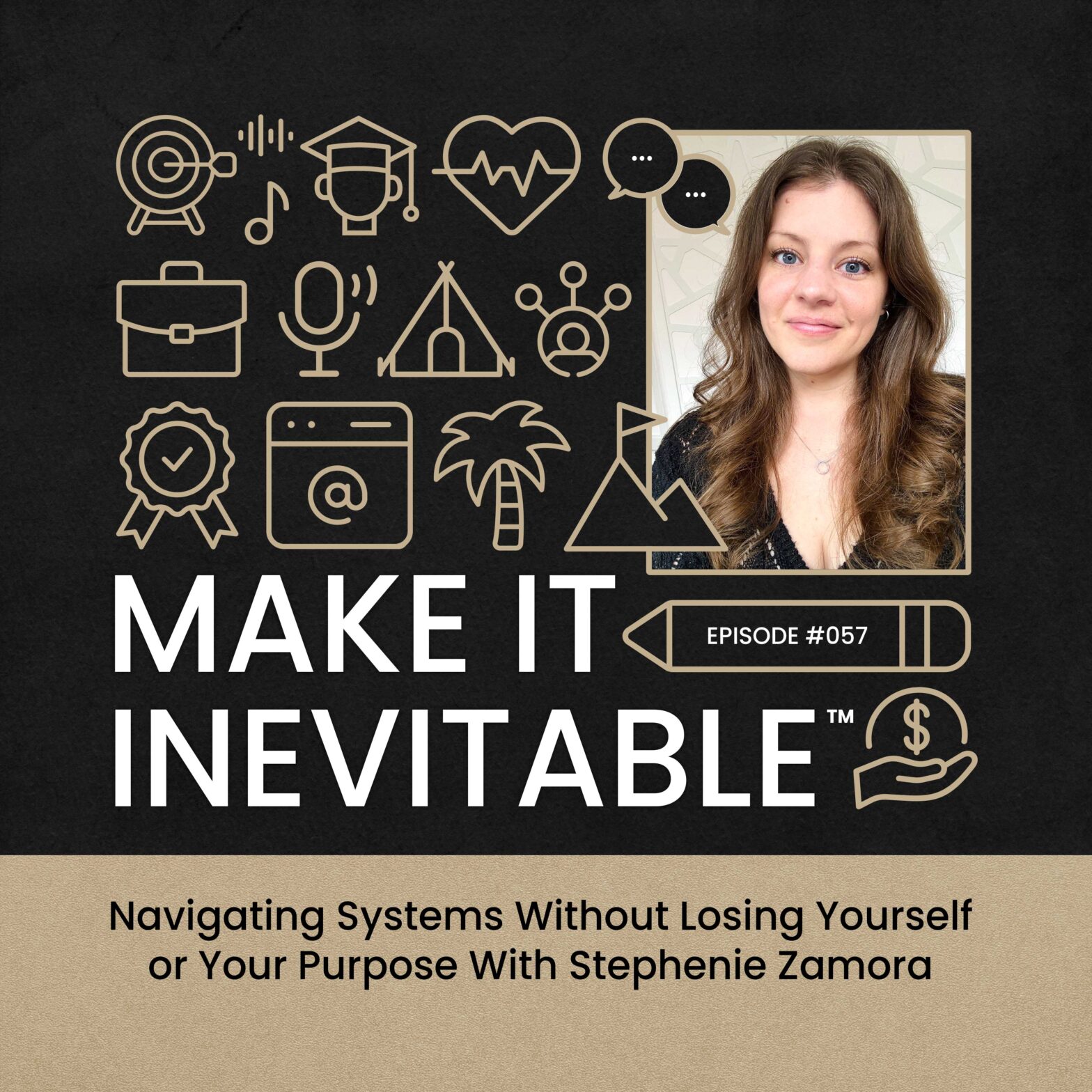Podcast (makeitinevitable): Play in new window | Download
“Being able to think from a systems lens will change so much for you.”
In this episode, I’m talking about navigating systems without losing ourselves or our purpose. In this world, there are natural systems and man-made systems, and the systems we’ve created as humans are inherently biased because they’re created by and for specific types of people. These systems then inevitably cause harm to those who are “other,” and it becomes far more difficult to bring our big, impossible visions to life. In order to have a full conversation about purpose, healing, growth, and goals, we have to talk about the systemic obstacles and effects because they’re real challenges for many. In today’s conversation, we’re talking about the systems we’re born into, how they affect us, and how to not take them personally while thinking through a systems lens so that we’re more leveraged to create the transformations we want to see in ourselves and our world.
Understanding the art (and power) of not taking things personally.
Come into alignment with your purpose and callings through our Actualize™ program.
Build trust in yourself with our Have Your Own Back AcuSesh™ Album.
Grab our free, actionable workbooks on navigating the Terror Barrier and making the impossible inevitable here.
What to listen for:
- A breakdown of what systems are and where we see them
- Systems are inherently biased and, therefore, harmful
- If you can’t see a system or its harm, you benefit from it
- Using the harm of the patriarchy as an example
- A breakdown of the outdated education system
“It was designed by people who believed that there was a certain set of skills that you needed to have to be successful within that period of time. So, the education system was designed to churn out little adults with the same knowledge and skills. It did not care about how you’re wired. It did not care about your personality type. It did not care about different learning styles. So the education system, I believe, is a trauma for most people.”
- Childhood is a trauma for most individuals
- Being the “right” match for the system always benefits us
- Understand your unique energetics with Kendra Woods
- The stories we tell when we don’t fit with the systems
- “Not being political” is a privilege of not being “other”
- It’s not just about dismantling systems
“We can’t just dismantle systems. There will be a system that replaces it. So, the work with systems is about understanding the need that it’s meeting for the people that it’s supporting. And can that system be replaced? Can that need continue to be met without causing harm to others? Some systems, absolutely. But in certain systems, there’s not a way to meet the need, and we have to stress the system to a breaking point so that it can force change.”
- Where we’re seeing systems stressed today
- Systems aren’t personal, even when they feel like it
- The perception model and not taking things personally
- Childhood is a trauma for many of us
- Systems shape and fail people, perpetuating harm
- Learning to see the world through a systems lens
“As individuals going through healing and growth, as people going after what feels impossible to us, being able to think from a systems lens will change so much for you. Does that mean it will make it easier? No. With some systems, sure, but with most systems, probably not. It will be more easeful because you will be able to point to the system at play. When you can point to the system, you can better understand why the system is causing harm to you, why people are the way that they are inside of the system, and you can understand that it’s not personal even though it feels very personal and looks very personal at times.”
- How systems are structured to stay alive
- Starting to look at the systems we benefit from differently
- You’re not broken or crazy; it’s the effect of systems
- Understanding does not mean tolerating
